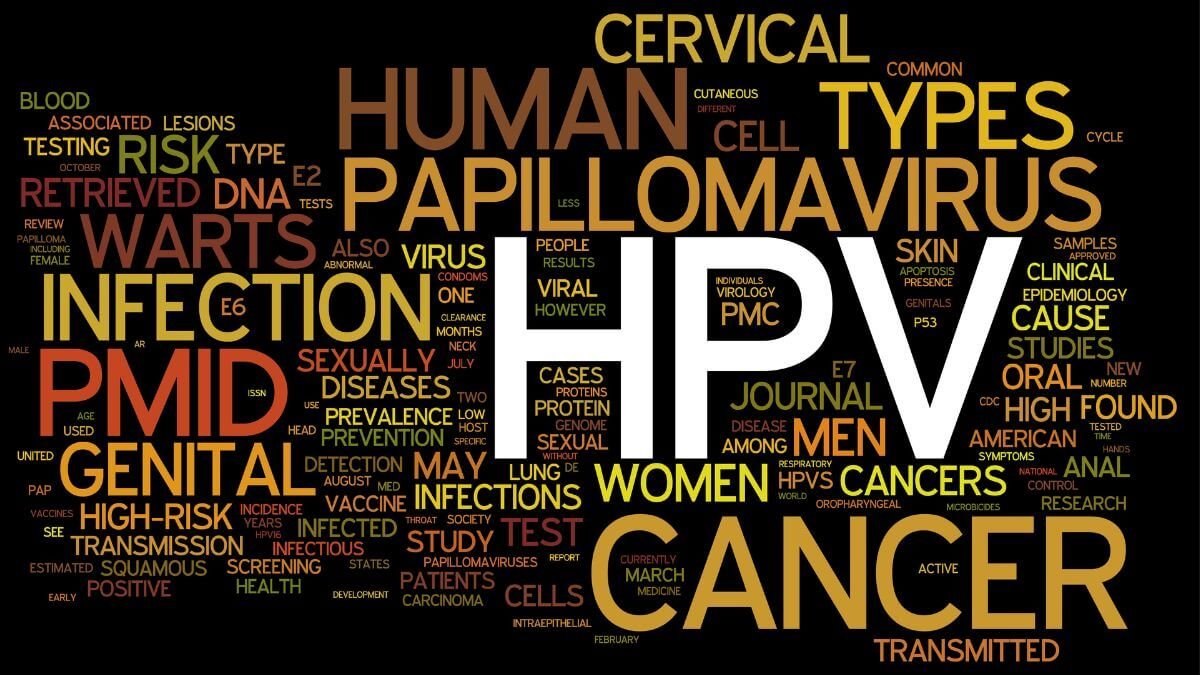Getting Started: HPV Virus Hepatitis
The HPV and hepatitis B viruses are linked. This is a serious health concern. Co-infection is a major topic of research in modern virology, and clinical epidemiology. The human papillomavirus (HPV) and hepatitis viruses (mainly hepatitis B and C) are known for their silent progression and potential to trigger chronic inflammation, immune exhaustion, and malignant transformations–particularly cervical, anal, and liver cancers.
While each virus is a significant global health concern on its own, their coexistence poses a multiplicative risk, particularly in populations that have compromised immunity, or limited access to regular screening and vaccination. The co-infection can lead to persistent viral reproduction, treatment challenges and increased carcinogenic potential because of sustained systemic inflammation.
Also read about: PAPILLEX
This article explores the relationship between hbv, hpv, and their impact on your health. Both the HPV and hepatitis B viruses are associated with cancers of various types. This highlights the importance of raising awareness about world health. Papillex is a complementary approach that is backed up by expert insight, scientific literature and complementary approaches.
What is the HPV virus Hepatitis connection?
The HPV hepatitis There are many aspects to the relationship between HPV, and hepatitis B. Further research is needed. Both viruses can be transmitted by sexual contact, contaminated bodily liquids, or blood. HPV targets epithelial cell, particularly in the anogenital area, while hepatitis B viruses target liver cells. Studies show that hbv/hpv co-infections share a similar immunological and pathological milieu, highlighting the global health implications. Hepatitis caused by the HPV virus

Key scientific observations:
- Patients with chronic hepatitis B and C have higher HPV persistency rates.
- The immune system may be compromised by the T-cell suppression that occurs in hepatitis.
- Patients with hepatocellular cancer (HCC) and cervical intraepithelial carcinoma (CIN), have been found to be infected.
- Both infections are associated with elevated levels of pro-inflammatory markers, such as interleukin-6, TNF-alpha and NFKB. These markers promote oncogenesis.
The connection between the HPV and the hepatitis B viruses is still being investigated. It suggests that each virus promotes the persistence of the other in an immunologically permissive milieu.
Health Risks and Implications of Co Infection
HPV, hepatitis virus When HPV and Hepatitis B virus co-infect a person, the risks are compounded rather than just added up. Hepatitis B and HPV
Increased Health Risks
- Cervical Cancer and Liver Cancer Progress
When HPV is co-infected, women with chronic hepatitis have an increased risk of developing high-grade lesions on the cervix. Hepatitis B and C can increase the risk of liver cancer when combined with HPV. - Immune Suppression & Delayed Clearance
The co-infected individual exhibits longer viral shedding and lower clearance rates of both viruses. - Therapeutic Resistance
Dual infections can cause systemic immune stress, which may reduce the effectiveness of antiviral treatment. - Oxidative stress and increased inflammation are key factors in the association of hbv with hpv.
Cancer risk increases when chronic inflammation is caused by infections such as HPV or hepatitis b virus. - Psychosocial Impact
Patients with co-infections are often more emotionally distressed, stigmatized, and have a reduced quality of living.
The need for holistic approaches is evident, combining medical, nutritional and lifestyle interventions to combat hbv/hpv. Hepatitis caused by the HPV virus

Strategies for Preventing and Managing Co-Infection
A comprehensive approach is needed to tackle the challenges presented by hbv/hpv. Hepatitis B and HPV virus A multi-layered approach is required to prevent, screen, treat, and support the immune system. Hepatitis B Virus
1. Vaccination
- HPV: Covers nine major strains that are responsible for genital warts and cervical cancer, including HPV and Hepatitis B.
- Hepatitis B Recombivax (Engerix B): Important for children, healthcare professionals, and high-risk adult.
There is currently no vaccine available for hepatitis C, which is of great concern to the world’s health.
2. Routine Medical Examination
- Sexually active women should undergo annual Pap smears as well as HPV DNA testing.
- Tests for liver enzymes (ALT/AST), and screening for HCV antibodies in those at high risk.
3. Integrative Support Using Papillex
Papillex offers:
- Immune modulation by antioxidants (Vitamin C selenium green tea extract
- Reduce inflammation by using mushroom blends (reishi and shiitake).
- Cellular protection using L-lysine (L-lysine), folate and indole-3 carbinol I3C
After consistent use, many individuals report improved immune markers as well as clearer Pap test results.
4. Nutritional and lifestyle optimization
- Both alcohol and smoking reduce viral clearance.
- Adopt a Mediterranean diet that is rich in fruits and leafy greens.
- Sleep, hydration and stress reduction are important factors that can affect the body’s reaction to hbv or hpv. Hepatitis caused by the HPV virus
VISIT OUR OFFICIAL STORE https://salesupra.com/
Why co-infection is so dangerous: The science behind the inflammation
Co-infections are characterized by inflammation. Hepatitis caused by the HPV virus
Mechanisms of Play
- Systemic immunity is affected by chronic hepatic inflammatory disease caused by HBV/HCV.
- HPV-infected cells in the cervical region may be able to upregulate the expression of oncogenes when inflammatory cytokines are present. This is a novel case that has been observed during the study of the hbv/hpv interaction.
- The mitochondrial dysfunction increases ROS (reactive oxygen species) which can lead to DNA damage, hbv/hpv risk and exacerbation of the damage.
- Both viruses damage the mucosal barriers, making it easier to re-infect and spread viral infections.
These findings support the use of immunonutrition in conjunction with other therapies. The role of supplements like Papillex in reducing cytokine activity and enhancing mucosal immune system is being studied.
Unanswered questions and Emerging Research
It is still a developing field. Research questions that are critical include the impact of HPV and hepatitis B co-infection on cancer types.
- What are the long term outcomes of co-infection among different demographics
- Can immune nutraceuticals such as Papillex affect viral clearance rates
- How do microbiomes in the gut, liver and cervicovaginal tract modulate immune responses?
To better define accessible and effective therapeutic protocols, international collaborations are being undertaken, especially in regions where HPV and Hepatitis are prevalent. HPV Virus Hepatitis

The Final Takeaway
Convergence of HPV virus and hepatitis represents more than a medical coincidence. It is a dynamic interplay that can intensify pathogenesis, pose challenges to treatments and strain the healthcare system, especially in cases of co-infection with hbv or hpv. Awareness is key. Patients and healthcare providers can act more proactively when they understand the connection. Hepatitis caused by HPV virus
Vaccination and screening are important tools to fight co-infections and promote wellness.
FAQ – Frequently Asked Questions
What is HPV virus hepatitis?
HPV virus hepatitis is a condition where the human papillomavirus (HPV) infects the liver, leading to inflammation and potential long-term liver damage.
How does HPV virus hepatitis affect the liver?
HPV virus hepatitis can cause liver inflammation, which may lead to chronic liver disease or even cirrhosis if left untreated.
What are the symptoms of HPV virus hepatitis?
Common symptoms include fatigue, jaundice (yellowing of the skin or eyes), abdominal pain, and dark urine. However, many individuals may experience no symptoms.
Can HPV virus hepatitis be prevented?
Yes, prevention includes vaccination against HPV, practicing safe sexual activities, and regular liver health check-ups.
Is there a treatment for HPV virus hepatitis?
Treatment options focus on managing symptoms, preventing liver damage, and may include antiviral medications and lifestyle changes.
Can HPV virus hepatitis lead to liver cancer?
In some cases, chronic HPV virus hepatitis may increase the risk of liver cancer, especially if left untreated and results in significant liver damage.
This FAQ provides a clear, concise understanding of HPV virus hepatitis and offers helpful information for individuals looking for answers.

I’m an economist with 15 years of experience in strategic planning and a lifelong passion for wellness and natural living. As a self-learner, I created Herbalife Balance to share insights on healthy eating, mindful habits, and an active lifestyle. Tennis enthusiast and nature lover, I believe in balance as a path to well-being. Through this blog, I help others live healthier, more conscious lives.









